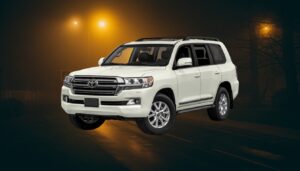Are you looking for a convenient and affordable way to travel? Renting a micro private car might be the perfect solution. With the rise of micro car rental services, you can now explore your surroundings without the hassle of owning a vehicle.
Micro private car rentals offer a range of benefits, including flexibility and cost-effectiveness. Whether you’re traveling for business or leisure, renting a micro private vehicle can be an ideal choice. In the US, private car rental services are becoming increasingly popular, providing travelers with a reliable and efficient way to get around.
Key Takeaways
- Convenient and affordable travel options
- Flexibility and cost-effectiveness
- Reliable and efficient transportation
- Variety of micro private vehicles available
- Ideal for both business and leisure travel
What Are Micro Private Cars?
As urbanization increases, micro private cars are becoming an attractive option for those looking for a practical and cost-effective mode of transportation. These vehicles are designed to be compact, fuel-efficient, and easy to maneuver in crowded city streets.
Definition and Characteristics
Micro private cars are defined by their small size and lightweight construction, making them ideal for short trips and daily commutes. Key characteristics include their compact length, typically under 3.5 meters, and their fuel efficiency, often achieving over 50 miles per gallon. These cars are perfect for navigating tight city spaces and reducing carbon footprint.
The design of micro private cars prioritizes simplicity and functionality, often featuring a minimalist interior and a compact engine. This not only reduces production costs but also contributes to their environmental benefits.
History and Evolution of Micro Cars
The concept of micro cars dates back to the post-World War II era, when fuel was scarce and economical transportation was a necessity. The first micro cars were simple, minimalist vehicles that provided basic mobility. Over the years, micro cars have evolved to incorporate modern technology, safety features, and stylish designs, making them appealing to a wider audience.
Today, micro private cars continue to adapt to the changing needs of urban dwellers, with many manufacturers investing in electric and hybrid models to further reduce environmental impact.
Benefits of Renting Micro Private Cars
Renting micro private cars offers numerous benefits for urban travelers. These vehicles are designed to navigate the challenges of city driving, providing an efficient and enjoyable experience.
Fuel Efficiency and Environmental Impact
One of the significant advantages of micro cars is their fuel efficiency. With rising fuel costs and growing environmental concerns, micro cars offer a practical solution. They consume less fuel, reducing both your travel expenses and carbon footprint. Moreover, many micro cars are designed with eco-friendly technologies, further minimizing their environmental impact.
Eco-friendly driving is becoming increasingly important, and micro cars are at the forefront of this movement. By choosing a micro car rental, you’re not only saving money but also contributing to a cleaner environment.
Easy Parking and Maneuverability
Micro cars are incredibly easy to park and maneuver in tight city spaces. Their compact size allows them to fit into parking spots that larger vehicles can’t, making them ideal for urban environments. This ease of parking reduces the stress associated with city driving, making your travel experience more enjoyable.
Additionally, micro cars are designed for agile handling, allowing drivers to navigate through congested city streets with ease. This feature is particularly beneficial in cities with narrow streets and heavy traffic.
Cost-Effectiveness for Short Trips
For short trips, micro car rentals are a cost-effective option. With lower rental rates compared to larger vehicles, micro cars provide an affordable solution for short-distance travel. Furthermore, their fuel efficiency means you’ll save on fuel costs, making them an economical choice for both locals and tourists.
Whether you’re exploring a new city or running errands, micro cars offer a budget-friendly alternative without compromising on the driving experience.
Types of micro cars available for rent
Micro cars have gained popularity in India due to their fuel efficiency and parking convenience, with several models being offered for rent. These compact cars are ideal for short trips and city sightseeing, providing a convenient and affordable solution for travelers.
Smart ForTwo
The Smart ForTwo is one of the most recognizable micro cars on the market. With its compact size and unique design, it’s perfect for navigating tight city streets. The Smart ForTwo is known for its fuel efficiency, achieving up to 39 mpg in the city and 42 mpg on the highway. Its small size also makes it easy to park in crowded urban areas.
Fiat500
The Fiat500 is another popular micro car available for rent. It combines a stylish design with eco-friendly features, making it a great choice for environmentally conscious travelers. The Fiat500 offers a fun driving experience and is equipped with modern amenities, ensuring a comfortable ride.
Mini Cooper
The Mini Cooper is a well-known brand that offers a range of micro car models. It’s praised for its agile handling and premium feel. Renting a Mini Cooper is a great way to experience the thrill of driving a high-quality vehicle while still enjoying the benefits of a compact car.
Chevrolet Spark
The Chevrolet Spark is a practical and affordable micro car option. It’s designed with the urban driver in mind, offering easy maneuverability and a spacious interior relative to its size. The Chevrolet Spark is a great choice for those looking for a reliable and budget-friendly rental option.
In conclusion, the US rental market offers a variety of micro cars that cater to different needs and preferences. Whether you’re looking for fuel efficiency, style, or practicality, there’s a micro car available for rent that’s right for you.
How to Book a Micro Private Car Rental
Booking a micro private car rental is a straightforward process that can be completed online or through a mobile app. With the rise of digital technologies, renting a car has become more convenient and accessible than ever.
Online Booking Process
The online booking process is simple and user-friendly. To book a micro private car, visit the rental company’s website, select your preferred car, and choose your rental dates. You will then be asked to provide some basic information, such as your name, contact details, and driver’s license number.
Key benefits of online booking include:
- Convenience: Book from anywhere, at any time.
- Transparency: Clear information about pricing and car details.
- Speed: Quick booking process that takes just a few minutes.
Mobile App Booking Options
Many car rental companies now offer mobile apps that allow you to book a micro private car rental on the go. These apps are designed to be intuitive and easy to use, providing a seamless booking experience.
“Using a mobile app to book a car rental is a game-changer,” says a frequent renter. “It’s so convenient to be able to book a car from my phone, and the process is quick and easy.”
Required Documents and Eligibility
To rent a micro private car, you will typically need to provide a valid driver’s license, proof of insurance, and a credit card. The eligibility criteria may vary depending on the rental company and your location.
Here are the common requirements:
| Document | Description |
|---|---|
| Valid Driver’s License | A current driver’s license issued by your state or country. |
| Proof of Insurance | Evidence of insurance that covers the rental vehicle. |
| Credit Card | A valid credit card to secure the rental. |
Micro Car Rental Pricing and Packages
Micro car rental pricing can vary significantly based on several factors, including rental duration and insurance options. Understanding these costs is essential for planning your trip and staying within your budget.
When renting a micro car, you have the flexibility to choose from various rental periods. Daily, weekly, and monthly rates are available, catering to different needs and preferences.
Daily, Weekly, and Monthly Rates
The rental rates for micro cars vary based on the duration of the rental. For instance:
- Daily rates are ideal for short trips and city tours.
- Weekly rates offer discounts for longer rental periods, suitable for weekend getaways or business trips.
- Monthly rates provide the best value for extended stays, perfect for relocations or long-term travel.
As Smart Car of America notes, “The flexibility in rental periods allows customers to tailor their car rental experience to their specific needs.”
Insurance Options
Insurance is a critical aspect of car rental. Micro car rental companies offer various insurance options to protect you against unforeseen circumstances. These may include:
- Collision Damage Waiver (CDW)
- Liability Insurance
- Personal Accident Insurance
It’s crucial to review these options carefully and choose the coverage that best suits your needs.
Additional Fees and Charges
Apart from the rental rates and insurance, there may be additional fees and charges to be aware of. These can include:
- Fuel charges
- Parking fees
- Tolls and congestion charges
As
“Transparency in pricing is key to a hassle-free rental experience,”
says a leading car rental expert. Understanding all the costs involved helps in planning a stress-free trip.
By considering these factors, you can make an informed decision when renting a micro car, ensuring a smooth and enjoyable experience.
Best Cities in the US for Micro Car Rentals
The compact nature of micro cars makes them an ideal choice for navigating the crowded streets of major US cities. With their fuel efficiency, ease of parking, and cost-effectiveness, micro cars are becoming increasingly popular among both locals and tourists.
Urban Centers with High Demand
Urban centers with dense populations and limited parking spaces are perfect for micro car rentals. Cities like New York, San Francisco, and Chicago have high demand due to their congested streets and the need for efficient transportation.
Top Urban Centers:
- New York City, NY
- San Francisco, CA
- Chicago, IL
- Los Angeles, CA
- Boston, MA
These cities have embraced micro cars due to their ability to navigate through tight spaces and reduce the hassle of parking.
Tourist Destinations Ideal for Micro Cars
Tourist destinations with narrow streets and scenic routes also benefit greatly from micro car rentals. Places like Miami Beach, New Orleans, and Santa Monica attract visitors who prefer the flexibility and fun of driving micro cars.
| Tourist Destination | Why Micro Cars are Ideal |
|---|---|
| Miami Beach, FL | Narrow streets and vibrant nightlife |
| New Orleans, LA | Compact historic district and jazz scene |
| Santa Monica, CA | Beachside drives and pedestrian-friendly areas |
These destinations offer a unique driving experience that complements the micro car’s characteristics, making them perfect for tourists.

In conclusion, micro car rentals are a hit in both urban centers and tourist destinations across the US, offering a practical and enjoyable way to explore these areas.
Why Choose a Micro Car for Your Next Trip
Micro cars are an excellent choice for your next adventure, offering a unique blend of efficiency and fun. Whether you’re traveling solo, with a partner, or exploring a new city, micro cars provide a convenient and enjoyable experience.
Perfect for Solo Travelers and Couples
Micro cars are particularly suited for solo travelers and couples due to their compact size and ease of handling. They offer an intimate driving experience, allowing you to enjoy the journey without the hassle of large vehicle rentals.
Ideal for City Exploration
When it comes to city exploration, micro cars shine. Their small size makes navigating through crowded streets and finding parking in tight spots much easier. This makes them ideal for discovering urban attractions without the stress of larger vehicles.
Environmental Benefits
One of the significant environmental benefits of micro cars is their fuel efficiency, which reduces carbon emissions. By choosing a micro car for your trip, you’re not only enjoying a cost-effective travel option but also contributing to a cleaner environment.
In conclusion, micro cars offer a compelling package for travelers, combining the benefits of easy maneuverability, cost-effectiveness, and environmental friendliness. Whether you’re a solo traveler, a couple, or just looking to explore a city, a micro car rental is a great choice for your next trip.
Customer Experiences with Micro Car Rentals
Micro car rentals have revolutionized the way people navigate cities and tourist destinations. With their compact size and fuel efficiency, these vehicles offer a convenient and cost-effective solution for short trips. Many customers have shared their positive experiences with micro car rentals, highlighting their ease of use and environmental benefits.
Success Stories from Urban Commuters
Urban commuters have found micro car rentals to be a lifesaver in congested city centers. For instance, a commuter in New York City praised the Smart ForTwo for its ease of parking in tight spots. The ability to navigate through heavy traffic with ease was a significant advantage. Here are some key benefits highlighted by urban commuters:
- Ease of parking in compact spaces
- Fuel efficiency, reducing travel costs
- Maneuverability in heavy traffic
Feedback from Tourist Renters
Tourists have also benefited greatly from micro car rentals, enjoying the freedom to explore new destinations without the hassle of large vehicles. A family on vacation in San Francisco appreciated the agility of the Fiat 500, which allowed them to explore the city’s hilly terrain with ease. Key feedback from tourists includes:
- Enjoyed the ease of exploring tourist attractions without parking worries
- Appreciated the cost-effectiveness of micro car rentals for short trips
- Valued the environmental benefits of driving smaller, more fuel-efficient vehicles

Overall, customer experiences with micro car rentals have been overwhelmingly positive, with both urban commuters and tourists praising their convenience, cost-effectiveness, and environmental benefits.
Conclusion
Renting a micro private car is an excellent option for those looking for a cost-effective, environmentally friendly, and convenient way to navigate the US cities. With the benefits of fuel efficiency, easy parking, and cost-effectiveness, it’s no wonder that micro car rentals are becoming increasingly popular.
Whether you’re a solo traveler, a couple, or just looking for a fun way to explore urban centers, micro private cars offer the perfect solution. By choosing a micro car rental, you’ll not only be reducing your carbon footprint but also enjoying the freedom to roam wherever you please.
With various types of micro cars available for rent, including the Smart ForTwo, Fiat500, and Mini Cooper, you’re sure to find the perfect vehicle to suit your needs. So why wait? Book your next micro car rental today and experience the benefits of US car rental for yourself.
FAQ
What is the minimum age to rent a micro private car?
The minimum age to rent a micro private car varies by rental company, but it is typically 21 years old, and some companies may require a surcharge for drivers under 25.
Can I rent a micro private car for one-way travel?
Yes, many rental companies offer one-way rentals for micro private cars, but there may be additional fees, and availability can vary depending on the location.
Are micro private cars available with automatic transmission?
Yes, most micro private cars available for rent are automatic, making them easy to drive in heavy city traffic.
Can I rent a micro private car if I have a credit card with a low credit limit?
Rental companies typically require a credit card with a sufficient credit limit to cover the rental fees and any potential damages, so a low credit limit may affect your ability to rent.
How do I cancel or modify my micro private car rental booking?
Cancellation and modification policies vary by rental company, so it’s best to check with your rental company directly for their specific policies and any associated fees.
Are there any additional fees for fuel, insurance, or other services?
Yes, additional fees may apply for fuel, insurance, and other services such as GPS or additional drivers, so be sure to review your rental agreement carefully.
Can I rent a micro private car for a long-distance trip?
While micro private cars are ideal for short trips, some rental companies may have mileage limits or additional fees for long-distance travel, so it’s best to check with your rental company in advance.
What types of insurance are available for micro private car rentals?
Rental companies typically offer various insurance options, including collision damage waivers, liability insurance, and personal accident insurance, to help protect you and your rental vehicle













